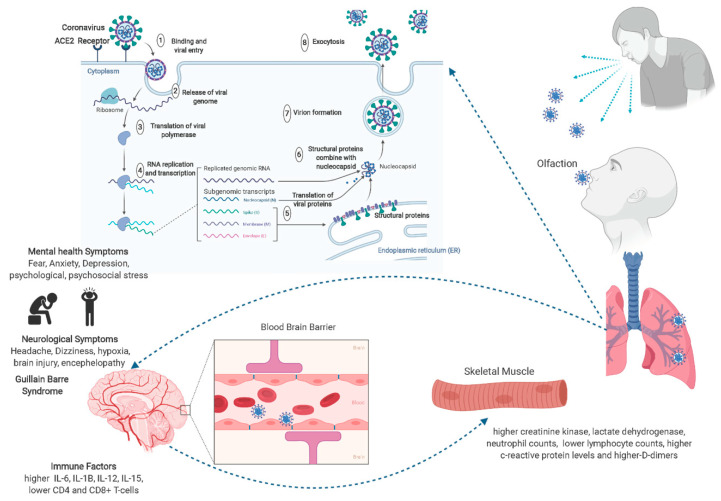Figure 2.
Putative mechanisms underlying neurobiological and psychological events of COVID-19 and their effect on mental health-related issues through psychoneuroimmunity. Virus–host interactions affect viral entry and replication—left panel: viral factor. SARS-CoV-2 is an enveloped positive single-stranded R.N.A. coronavirus. Two-thirds of viral R.N.A. is located in the first open reading frame that encodes 16 non-structure proteins. Host factors (right panel) can also influence susceptibility to infection and disease progression. COV2 enters the brain through olfaction, and since the virus is known to cross the blood–brain barrier, it can cause neurological symptoms like Guillain–Barré syndrome and mental health issues, including fear and anxiety for recovery. All these events are regulated by the cytokines and interleukins within the immune system.

